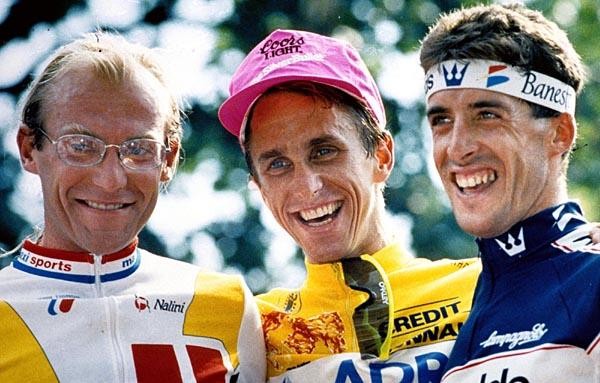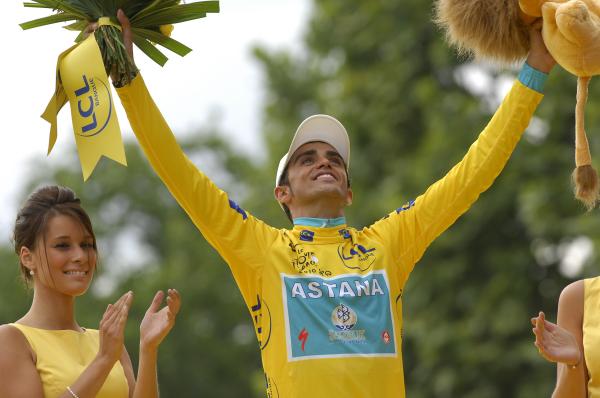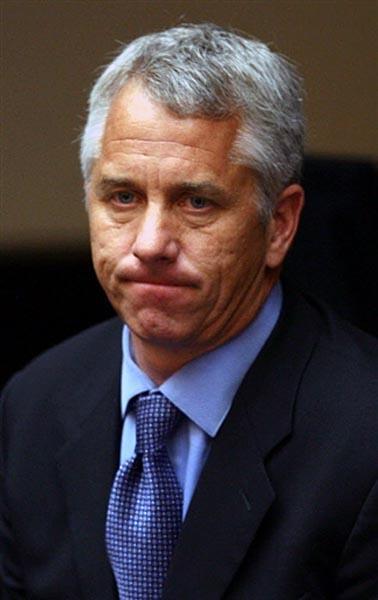Data of optimism?
Good news on this year's Tour



Hating to be the bearer of bad news too often, I am really happy to be able to see some real positive statistics come out of this year's Tour de France. The race between Alberto Contador and Andy Schleck was great to watch. Either one could have won this year’s Tour de France. What made the racing so exciting was how close the competition was. Most importantly their rides are believable and fall within the historic norms of athletic ability.
I have been very critical of the sport and, I believe, justifiably so. I am a cyclist who took up cycling by accident. This sport is so exciting, so romantic and so beautiful that I spent half of my life dedicated to it. My only hope is to see cycling right itself and gain back the credibility that any sport needs to thrive.
With that said, how do we eliminate the huge advantages of doping? The best way is to use the science and technology that already exists today to help eliminate the possibility of getting the huge benefit from taking doping products. This way a clean rider will have the chance to win in any event that he decides to compete in.
To get a better idea of what I mean, go to this website, http://www.sportsscientists.com, and read what two very knowledgeable scientists have to say regarding the performance of the riders in this year's Tour. I have read quite a few of their studies and they seem to know what they are talking about. They are very knowledgeable about the physiology and science of cycling, and have been doing this for years now.
When I read what their data indicates, I get hopeful that there has been a big effort to change the old habits of the past. This does not mean that the Tour is 100% clean but it does hint that things are possibly changing for the better.
I think that when you see levels of 5.8 or 5.9 watts per kilo for over 20 minutes, it is believable and falls into historical norms. It depends on the VO2 Max, of course, but I believe that a rider like Contador has a lot of talent and is therefore capable of that.
After reading their article, all I could think of was why doesn't the sport embrace scientists like these two to help figure out a better way to control the doping that has destroyed the integrity of cycling? I am a big believer in science and in the end it is the science that will stand the test of time.
The sportsscientists.com guys were saying that in the 90s and early 2000s, most of the climbs were done at 6.2, 6.3 and even up to 6.7 watts per kilo; this is a sign of blood doping.
As regards the future of drug testing, a better term might be drug controlling, controlling the drugs that really boost an athlete's performance. That would be done by using a combination of blood profiling, wattage output, using a system like the SRM Power meter, and profiling of O2 intake.
If you combine the above with criminal consequences for drug distribution and with the possibility for a positive rider to plea bargain his return back to racing (though only if the positive rider names his or her supplier, and with a life ban for those who refuse to cooperate), you might be able to slowly take out those people who have been a large part of the doping problem.
By controlling the hormones and blood boosting drugs plus the transfusions, all that might be left will be drugs that might give the rider a minimal benefit. The placebo effect can have more power to change a rider's ability than some of the drugs on the list. Hopefully talent, focus and motivation could make up the small difference.
Every athlete has a genetic max. Yes, there are things that even the best sports scientists might not be able to explain or understand at this point but eventually, science will discover the answer to the unanswered. One thing that I believe to be true is that huge gains in wattage cannot occur in a short period of time in a sport that is as competitive as cycling. This sport has been highly competitive for over 40 years and I believe that the performances of riders like Merckx would still stand up to the best in today's cycling.
There is some very good data out there that indicates little improvement in aerobic capacity when you look back at many of the Tour de France champions from the pre-EPO era. Hopefully steps will continue to be taken to ensure that the Tour de France is won by someone with natural talent who shows that his performance is backed up by his natural ability.
One thing is for sure - Alberto Contador is very talented and I am happy to see some data that indicates his victory could be the result of natural ability.
Overall, to me it looked much more like the racing I knew. There was a lot more fatigue and exhaustion - the attacks go, but then they fade. There is this hesitation in the riders, too - when you feel the suffering, you are going to start racing more tactically. That is what I have seen in this Tour. It's very different to the Tours you saw five years ago - then, the flat stages had the bunch in one long line. And when people got to the climbs, they were being dropped, but there was no sign of suffering. This year looked a lot better.
Finishing up, there's been a lot of talk about the chain problem that Schleck had the other day, and the fact that Contador and a few other riders didn't wait. I don't think his victory should be overshadowed by what ifs, as this is part of racing.
I think if it's 30 or 40 kilometers out, then absolutely - wait. But if it's three kilometers from the finish of an uphill, it is different. When you are racing like Contador was, you are not sitting there lucid and aware [of everyone]. You are completely focused on what you are doing.
If you look at the replay, Vinokourov was between Contador and Schleck and I think that obscured his view. I think that Contador did finally see that Schleck had stopped suddenly, but I don't think that he had any idea that he then got off his bike and had to put his chain back on, being further delayed.
It is certainly tragic for Schleck as it was clear that day that he was strong, and perhaps stronger than Contador, but I don't think Contador's victory should have an asterisk next to it. I don't think that Contador took an advantage.
When I look at my own career, I flatted on the last climb going into Pau in 1990. I think it was the Marie Blanc. Chiappucci saw me, got his teammates and just took off and attacked. I think that's different, when you consciously see someone flat and then you take off.
Anyway, I didn't like it, but the fact is that it was part of the race and I had to deal with it. I was more annoyed that my team car wasn't there. We were two minutes down and if it wasn't for Gilbert Duclos Lassalle and, I think, Kvalsvoll, who were up front yet sat and waited for me, I would have definitely lost the Tour.
The latest race content, interviews, features, reviews and expert buying guides, direct to your inbox!
Greg LeMond is one of the most important figures in cycling's rich history. A three-time Tour de France winner and double World Champion, LeMond not only reached the pinnacle of his sport, but changed it forever. The first American Tour winner, he brought cycling to new frontiers. A fearless champion of innovation, he ushered in a new era of technological advancement. A stylish and determined rider, he captured the hearts of fans the world over.
Articulate and informed in his opinions, LeMond has always been a forthright advocate of cycling's true values and we are delighted to welcome Greg to the Cyclingnews team for the duration of the Tour de France